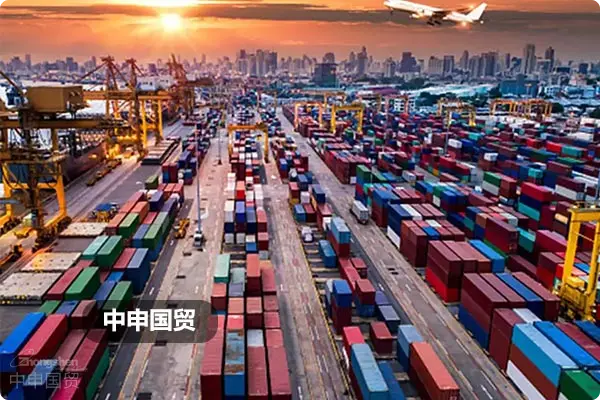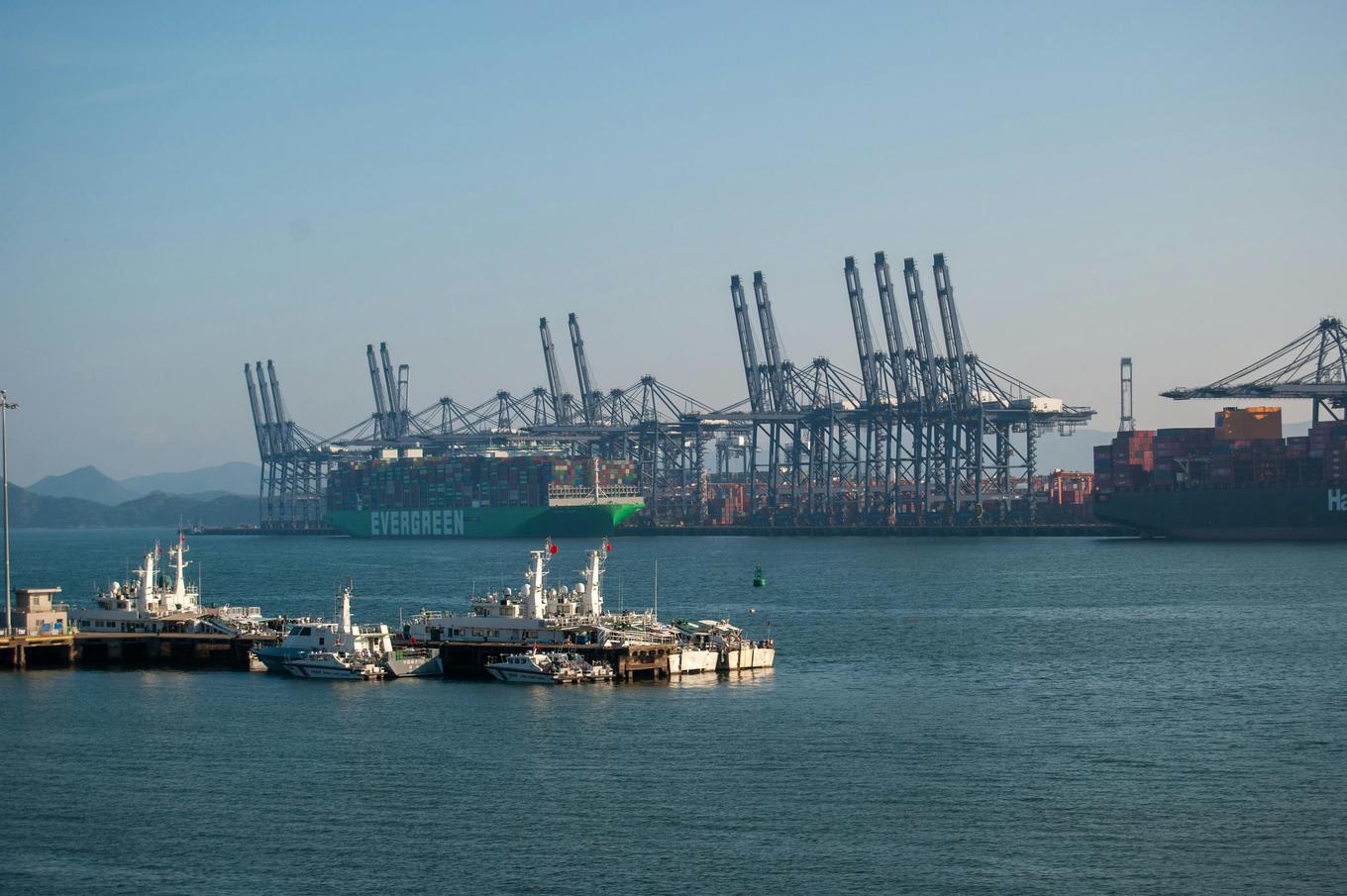- Shanghai Zhongshen International Trade Co., Ltd. - Two decades of trade agency expertise.
- Service Hotline: 139 1787 2118

Full Analysis of the Import Chain: Professional Assistance and Market Insights
In todays globalized economic landscape, import trade involves numerous complex links. From document processing to logistics arrangements, and then to strategies for different markets, every link is crucial. This article will focus on the import chain, providing you with an in-depth analysis of key points to help you navigate import trade smoothly.
Document Processing: The Cornerstone of Smooth Trade
Documents are the key passports for import trade. Accurate and timely processing of various documents is the basis for ensuring smooth customs clearance and delivery of goods. Professional capability is particularly important in document processing. For example, a commercial invoice must clearly and accurately state detailed information about the goods, including description, quantity, and value. This is not only an important basis for customs valuation but also a key voucher for settlement between buyers and sellers. The packing list, on the other hand, details the specific contents of each package, facilitating customs inspection and verification by the consignee.
As for the bill of lading, it is a document of title, and its circulation is closely related to the delivery of goods. When handling bills of lading, it is necessary to strictly followL/Cor contract requirements to ensure that the consignee, endorsement, etc., on the bill of lading comply with regulations. In actual operations, goods are often detained at ports due to document discrepancies, incurring high demurrage fees. Therefore, a professional document processing team can carefully review each document, identify and resolve potential problems in advance, and avoid such risks. For example, in the Russian market, customs review of documents is relatively strict. In addition to common commercial invoices and bills of lading, they may also requireIt is recommended to verify through the following methods:and other documents, and the document format and content have specific specifications. A professional team is familiar with these requirements and can ensure that documents comply with Russian standards, guaranteeing the smooth progress of trade processes.
Logistics Arrangement: Guarantee of Efficient Delivery
Logistics plays the role of a bridge connecting buyers and sellers in the import chain. From the port of origin to the port of destination, the efficient operation of logistics directly affects the delivery time and cost of goods. Choosing the appropriate mode of transport is crucial.Maritime Transportationhas the advantages of large volume and low cost, suitable for bulk cargo transportation;Air Transportationis fast and suitable for high-value, time-sensitive goods. When choosing sea freight, factors such as sailing schedule, route, and the reputation of the shipping company should be considered. For example, some shipping companies have more frequent sailings on specific routes, which can better meet the timely delivery needs of goods.
At the same time, warehouse management during the logistics process cannot be ignored. At the port of destination, goods may need to be temporarily stored in a warehouse awaiting customs clearance or transshipment. Professional logistics companies will provide suitable storage conditions based on the characteristics of the goods, such as cold storage for perishable goods. Moreover, logistics enterprises should also possess good supply chain integration capabilities, able to coordinate resources from freight forwarders, customs brokers, and other parties to ensure seamless transportation of goods. For example, in the Southeast Asian market, port congestion sometimes occurs. A professional logistics team can plan ahead, choose suitable transit ports, or adjust transportation times to avoid long delays in goods.
Russian market: VTBFX Settlement AgencyThe advantages are obvious
Russia, as an important trade market, has unique trade characteristics. In terms of foreign exchange settlement, VTB (Russianforeign tradeBank) provides convenience for import trade. Foreign exchange settlement, simply put, is the process of converting foreign currency into local currency. There are many advantages to settling foreign exchange through VTB channels in import trade with Russia. On the one hand, VTB holds an important position in the Russian financial system, and its settlement system is closely linked with Russian domestic banks, ensuring fast and secure arrival of funds. For example, when an importer completes goods delivery and the Russian party pays for the goods, through VTBs foreign exchange settlement process, funds can be converted into the currency required by the importer and smoothly enter their account within a relatively short period.
On the other hand, VTB is more familiar with Russias trade-related policies and regulations and has more experience in handling compliance issues during trade settlement. In Russia, trade settlement is subject to strict regulation, involving various requirements such as anti-money laundering and sanctions compliance. VTB can assist importers in ensuring that the foreign exchange settlement process complies with relevant regulations, avoiding fund freezes or delays due to compliance issues. For importers, choosing VTB for foreign exchange settlement can not only improve capital utilization efficiency but also reduce trade risks.
It is recommended to choose based on transportation distance and product characteristics:import and exportProcess and Solutions
Import Process
To conduct import trade in the Southeast Asian market, one must first clarify procurement needs and find suitable suppliers. After signing a contract with a supplier, the document preparation phase begins. In addition to conventional documents, different Southeast Asian countries may have special requirements. Taking Indonesia as an example, imported goods may require Indonesian National Standard (SNI) certification documents to prove compliance with Indonesian quality standards. In terms of logistics, there are many ports in Southeast Asia, but some port infrastructures need improvement, which may lead to inefficient cargo handling. Importers need to choose reliable freight forwarders and shipping companies and plan transportation routes in advance.
Upon arrival at the port, goods enter the customs declaration stage. During customs declaration, the declaration form must be accurately filled out, providing detailed cargo information, and relevant customs duties and taxes must be paid. Customs policies vary significantly among Southeast Asian countries; for example, Vietnam may grant tariff concessions on imported goods for certain specific industries to encourage industrial development. Importers should understand relevant policies in advance to reasonably plan import costs. After customs declaration is completed, goods can be released for pickup.
Solutions
For the characteristics of the Southeast Asian market, professional foreign trade agencies can provide a series of solutions. In terms of document processing, they help importers collect and review special documents to ensure completeness and compliance. In terms of logistics, leveraging good cooperative relationships with local freight forwarders and shipping companies, they optimize transportation solutions and reduce transportation costs. Regarding the complexity of tariff policies, professional teams can monitor policy dynamics in real-time and provide reasonable tariff planning advice to importers. For example, by utilizing the preferential policies of the ASEAN Free Trade Area (AFTA), some goods can enjoy lower tariff rates, thereby reducing import costs.
International Trade Situation: Challenges and Opportunities Coexist
The current international trade situation is complex and ever-changing, posing numerous challenges to import trade. Trade protectionism is on the rise, with various countries introducing trade restrictive measures such as increased tariffs and technical barriers. This not only increases import costs but may also affect market access for goods. For example, some countries set strict environmental standards for imported products, and goods that do not meet these standards will be prohibited from import.
At the same time, increasing global economic uncertainty leads to frequent exchange rate fluctuations. Significant exchange rate fluctuations can affect import costs and profit margins. For example, if the local currency depreciates, importing goods of the same value will require paying more local currency, squeezing profits. However, challenges also contain opportunities. The rise of emerging markets has opened up new spaces for import trade. With the rapid economic development in regions like Southeast Asia, the demand for various products continues to increase. Importers can seize this opportunity to expand their business scope and find new profit growth points. Furthermore, the development of digital technology brings convenience to trade; the application of electronic documents, online trading platforms, etc., improves trade efficiency and reduces transaction costs.
Product Certification: Assistance and Guidance
In import trade, product certification is a crucial step to ensure that goods comply with target market regulations and standards. Different markets have varying product certification requirements. In Russia, in addition to some certifications mentioned earlier, such as GOST certification, some products also need to comply with sanitary and epidemiological standards certification. In Southeast Asia, different countries also have their own certification systems. Although our company does not directly handle certification business, we have a professional team that can inform clients of required certifications and assist them in obtaining them.
We will meticulously review certification requirements based on the type of imported products and target market, and provide information on relevant certification bodies. During the assistance process, we help clients prepare the necessary materials for certification applications and guide them through the certification procedures. For example, for certifications that require product testing, we assist clients in contacting qualified laboratories to ensure smooth testing. Through this assistance, we ensure that clients can successfully complete product certification, allowing their goods to legally enter the target market.
In summary, the import chain encompasses numerous interconnected links. Professional document processing and logistics arrangements, combined with an understanding of different market characteristics, insights into the international trade situation, and assistance with product certification, can help importers navigate the complex trade environment steadily and achieve their trade goals.
Related Recommendations
? 2025. All Rights Reserved. Shanghai ICP No. 2023007705-2  PSB Record: Shanghai No.31011502009912
PSB Record: Shanghai No.31011502009912










